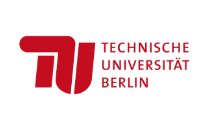Consortium
The Dig4Bio consortium spans 3 EU countries: Portugal, Denmark and Germany. It links IST (PT), as the project’s coordinator, with DTU (DK) and TUB (DE), two top-class leading EU research institutions in bioengineering. IST has a track record of more than 25 years in the areas of Bioengineering, Biotechnology, and Biosciences.
Partners

Instituto Superior Técnico ∙ IST
IST is the largest engineering school in Portugal and aims to contribute to the development of society by promoting excellence in higher education, in the fields of architecture, engineering, science and technology.

Associação do Instituto Superior Técnico para a Investigação e Desenvolvimento ∙ IST-ID
IST-ID is an affiliate entity of IST that aims to carry out scientific and technological activities, fostering knowledge transfer and promoting the involvement of national and foreign researchers in R&D projects.
Biomanufacturing research activities are essentially carried out within the Institute for Bioengineering and Biosciences (iBB) of IST-ID, which leverages engineering and life sciences to meet challenges in the Human Health and Bioeconomy areas. iBB further integrates the Associate Laboratory for Health and Bioeconomy (i4HB).

Daenmarks Tekniske Universitet ∙ DTU
DTU is one of Denmark’s leading higher education institutions and is internationally recognised as a leading university in the fields of technology and the natural sciences. It is renowned for its business-oriented approach, its focus on sustainability and its amazing study environment.
PROSYS ∙ Process and System Engineering Center
PROSYS aims to conduct research and provide training to advance technologies for future more sustainable (bio)chemical production processes. PROSYS activities include the digitalization of production processes and tackling societal challenges, contributing to some of the Sustainable Development Goals (SDGs), in particular sustainable production and consumption (SDG12), climate action (SDG13) and affordable and clean energy (SDG7).

Technische Universität Berlin ∙ TU Berlin
TU Berlin aims to advance science and technology for the benefit of society and is committed to the principle of sustainable development, aspiring to meet the needs of the present without overburdening future generations.
KIWI Biolab
The KIWI Biolab aims at finding optimal process conditions for biotechnological applications using automated methods and model-based bioprocess engineering. By combining automation in liquid handling stations with process models and machine learning approaches, highly complex tasks can be performed quickly and precisely that would not be possible manually.
